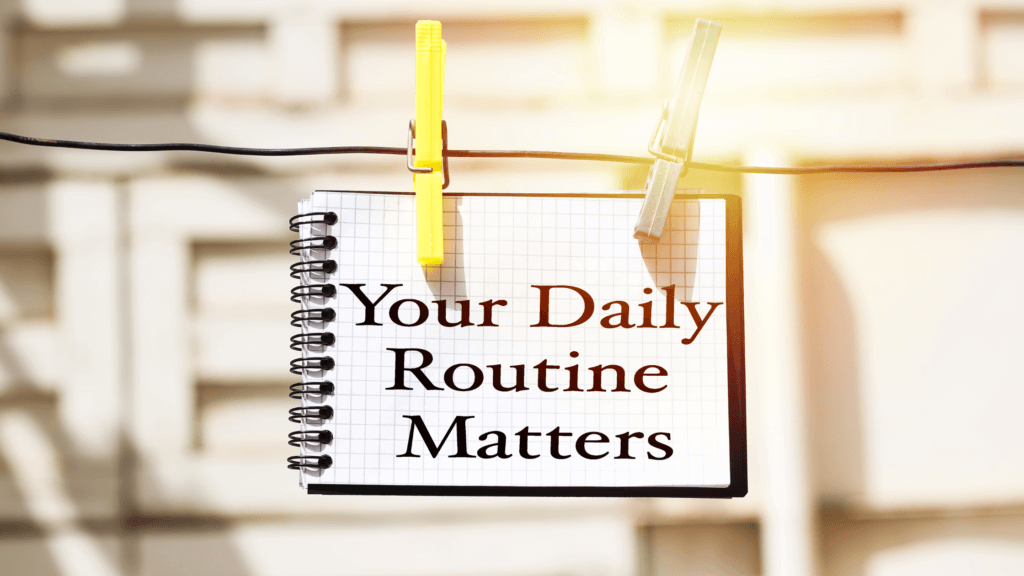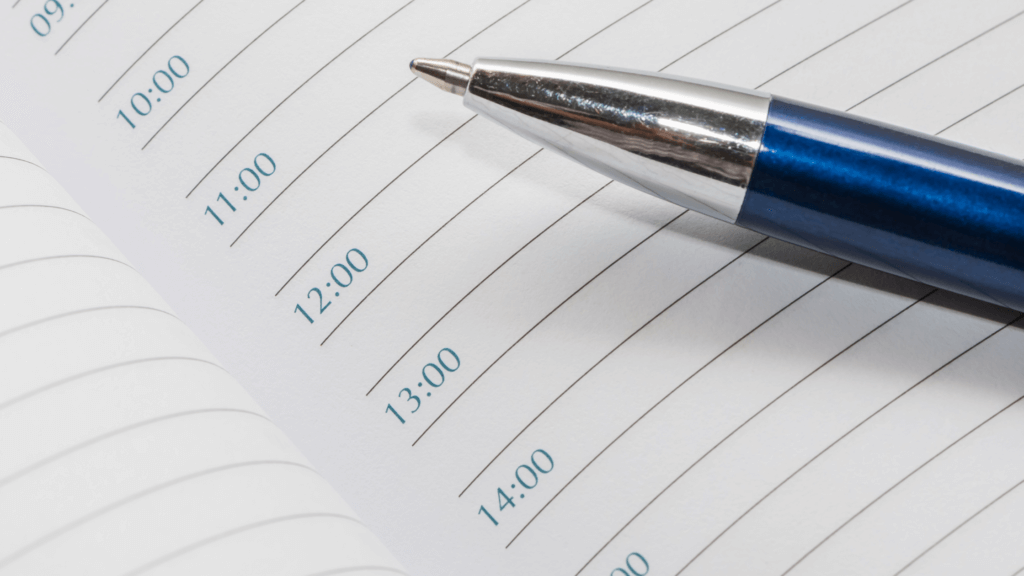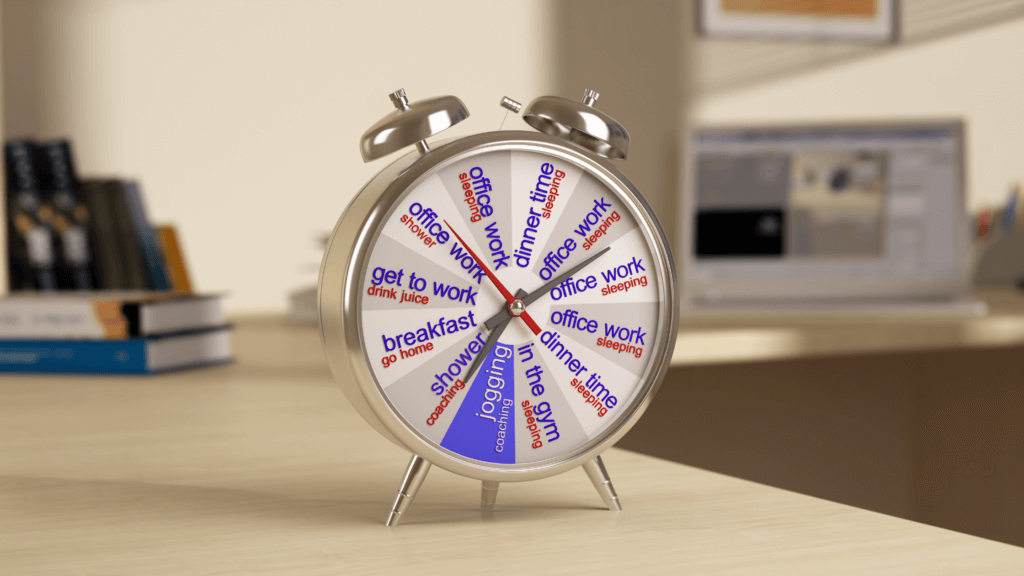Picture this: It’s morning, and the alarm goes off. John wakes up and picks up his phone to check the time, but quickly falls into the rabbit hole of social media. An hour later, he feels disoriented and mentally exhausted before even starting his day. He tries to dive into work, but his scattered thoughts make it hard to focus. By evening, John is overwhelmed, feeling a sense of agitation and failure.
Now meet Emily. Her mornings start with a sense of uncertainty and a never-ending to-do list that weighs her down. She sits staring into her coffee, ruminating on unfinished tasks, losing hours in the process. She tries to refocus, but anxious thoughts keep pulling her back. By evening, she feels emotionally drained, as though the day has slipped away without anything meaningful getting done.
These kinds of mornings can hijack our entire day, leaving us stressed, overwhelmed, and disconnected from our goals. A lack of routine leaves us vulnerable to distractions, leading to burnout and anxiety.
The good news? Routines can help. Simple, healthy habits can transform our mornings, set a positive tone for the day, and help us build a sense of control. In this article, we’ll explore why routines matter, how they can boost mental health, and how small changes can make a significant difference.

What is a Routine and Why Does it Matter?
A routine is essentially a set of habits or activities performed regularly, offering structure to your day. While some might think routines can feel restrictive, they actually free up mental energy for more important decisions. When tasks become automatic, they take less effort, allowing you to focus on what truly matters.
According to a study published in Psychological Science, routines offer emotional regulation and help reduce stress by creating an environment of predictability, which the brain craves. When our brain knows what’s coming, it is less likely to trigger anxiety responses, helping us feel more at peace throughout the day.
A good routine can also help break cycles of procrastination and boost productivity. For instance, having a set wake-up time, followed by a consistent morning ritual, can give you a head start, leaving you feeling accomplished and motivated even before your workday begins.
The Connection Between Routine and Mental Health
Reduces Anxiety
A consistent routine can reduce feelings of overwhelm. By having certain tasks already planned, you reduce decision fatigue and mental strain. Studies show that when we can anticipate what’s next, it helps calm the amygdala, the part of the brain that handles stress responses.
Boosts Confidence and Self-Worth
Small daily accomplishments build up. Completing even minor tasks, like making the bed or doing morning stretches, gives us a sense of productivity and progress, reinforcing self-esteem and emotional resilience. According to the Journal of Personality and Social Psychology, small wins can significantly boost overall well-being and motivation.
Balances Your Energy Levels
Establishing patterns for when to work, rest, and play helps prevent burnout. By having habits that require less mental energy, you can reserve that energy for larger, unexpected challenges. Productivity experts often emphasize that energy, not time, is our most valuable resource. Tracking energy levels with apps like Rise can help you align your routines with natural energy peaks throughout the day.
Improves Sleep Patterns
Good routines around bedtime, such as winding down without screens, journaling, or meditating, train your body to expect sleep. This creates a healthier sleep cycle, which directly affects mental health. Poor sleep is linked to increased anxiety and depression, while consistent sleep reduces these risks. According to research from the National Sleep Foundation, people who follow a regular sleep routine report better overall sleep quality and fewer instances of insomnia.

When Creating a Routine is Extremely Important
Building a routine is crucial during times of heightened anxiety, when life feels uncertain, or when external circumstances are beyond our control. It can also be a lifesaver when productivity seems to falter, when we feel our resourcefulness is fading, or when battling procrastination. In particular, creating a structured routine is often a key strategy for managing ADHD symptoms (whether officially diagnosed or not). It’s in these moments—when life feels overwhelming—that a routine becomes the lifeline helping us regain control and find balance.
Creating Your Personal Routine
Start Small
You don’t need to overhaul your entire life. Begin with something achievable, like a morning routine. Maybe it’s as simple as drinking water first thing in the morning, stretching, or practicing mindful breathing. Over time, these small actions can grow into bigger habits.
Consider this 3-Step Morning Routine to start:
- Drink Water: Hydrate first thing to wake up your body.
- Stretch for 5 Minutes: Loosen up muscles and boost circulation.
- Mindful Breathing: Practice 5 deep breaths to center yourself before the day starts.
Include Self-Care
Incorporate moments dedicated solely to your well-being, such as journaling, meditating, or walking outside. These habits can re-center you emotionally, creating a space of peace in your day. Try journaling with prompts like, “What are three things I am grateful for today?” to start your day on a positive note.
Consistency Over Perfection
Remember, routines aren’t about being rigid. If you miss a day, that’s okay. The goal is to build something sustainable. A recent study from Binghamton University has demonstrated that there is a strong correlation between maintaining consistent healthy habits, such as regular exercise, a balanced diet, and adequate sleep, and positive mental health outcomes. It’s helpful to keep a checklist for accountability. Print out a Routine Tracker to mark off your habits each day and celebrate small wins.
Include Self-Care
Incorporate moments dedicated solely to your well-being, such as journaling, meditating, or walking outside. These habits can re-center you emotionally, creating a space of peace in your day.
Consistency Over Perfection
Remember, routines aren’t about being rigid. If you miss a day, that’s okay. The goal is to build something sustainable. A recent study from Binghamton University has demonstrated that there is a strong correlation between maintaining consistent healthy habits, such as regular exercise, balanced diet, and adequate sleep, and positive mental health outcomes.

For the High-Achievers: Biohacking Your Routine
For those seeking to optimize every aspect of their lives, routines offer an avenue for “biohacking”—using science to improve biological functions. By aligning routines with your body’s circadian rhythms, you can maximize productivity and performance.
Examples of Biohacking Strategies
- Intermittent Fasting: Fasting for specific periods can help boost focus and energy. Studies have shown it can enhance cognitive function and productivity.
- Blue-Light Blocking Glasses: Wearing blue-light blocking glasses in the evening helps improve sleep quality by reducing blue light exposure that can disrupt melatonin production.
- Peak Energy Scheduling: Schedule focused work during periods of peak energy (like mid-morning). Apps like Rise can help you track your circadian rhythm and identify your high-energy windows.
Personalized routines can help create an edge, particularly in high-performance environments. Remember, biohacking is about experimenting to find what best suits your body and lifestyle.
Building Your Future Through Routine
Building a routine might be the first step toward the future we want to create for ourselves. It’s not just about long-term success; it’s also a way to ensure that our present day is as calm, mindful, and healing as it can possibly be given our circumstances. Establishing a solid foundation today is what allows us to tackle tomorrow with confidence.
Overcoming Obstacles to Building Routines
It’s natural to face challenges when building a routine, especially with a hectic lifestyle. If mornings are chaotic, start with something small like a five-minute breathing exercise rather than a full 20-minute routine. Parents or busy professionals might find it easier to incorporate routines that blend with existing activities, like mindful breathing while cooking or stretching during a child’s nap time. It’s about making small, consistent progress without striving for perfection.
Conclusion
A healthy routine isn’t about forcing yourself into a strict schedule, but rather about building habits that serve you. When you create a routine that reflects your values and needs, it provides a foundation for emotional and mental stability. If life feels overwhelming, start small. Introduce just one element into your day, such as a mindfulness practice or a consistent bedtime. Healing starts with the decision to show up for yourself daily.
Summary of Actionable Steps
- Start Small: Choose one new habit to introduce.
- Add Self-Care: Include activities like journaling or walking outdoors.
- Track Your Progress: Use a Routine Tracker to stay motivated.
- Celebrate Small Wins: Acknowledge your progress to maintain positive momentum.
Begin your journey to a healthier mind by adding one new habit to your routine today. Whether it’s connecting with a SafeAI companion or seeking professional help, know that every step toward self-care counts. Remember, you don’t need to be perfect to make progress—kindness to yourself is the most important first step.

